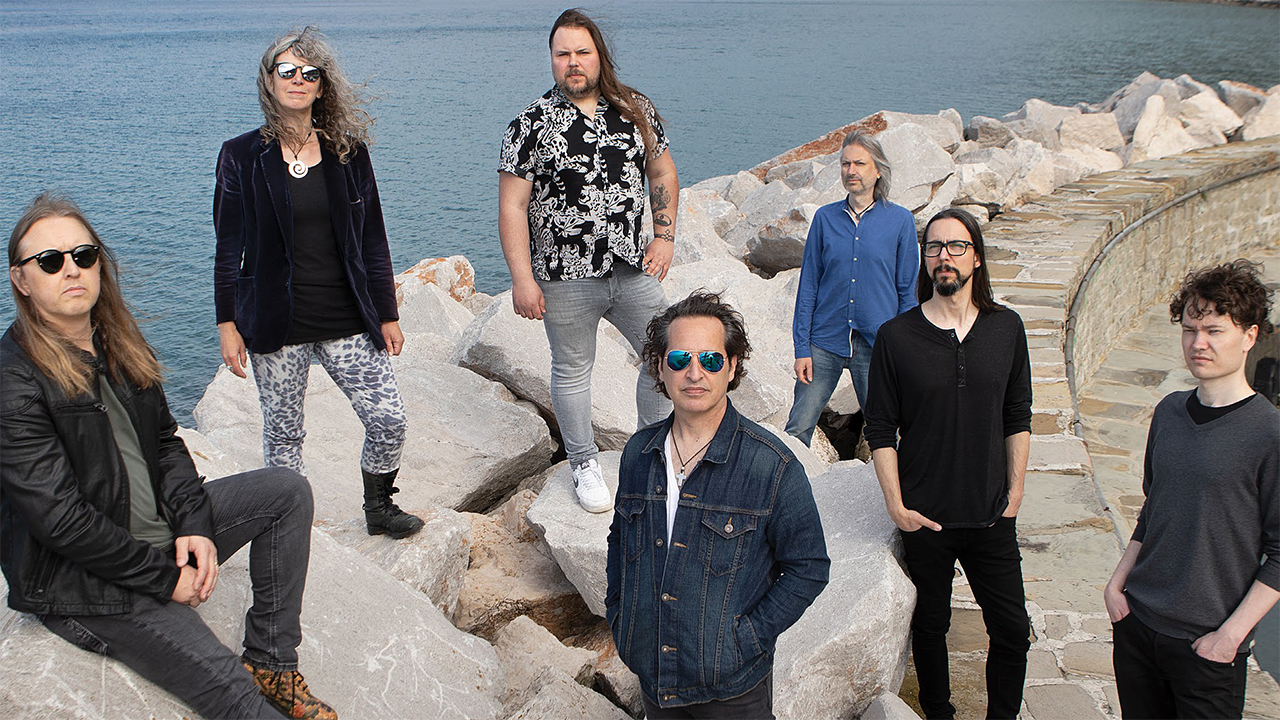"Not even Zeppelin or the Stones had ever done what we did": How Mick Jones invented Foreigner and paved the way for the multi-million-selling albums that dominated the next decade
Against all expectations, Foreigner's debut album sold millions. This is the real story behind one of the biggest debut albums ever
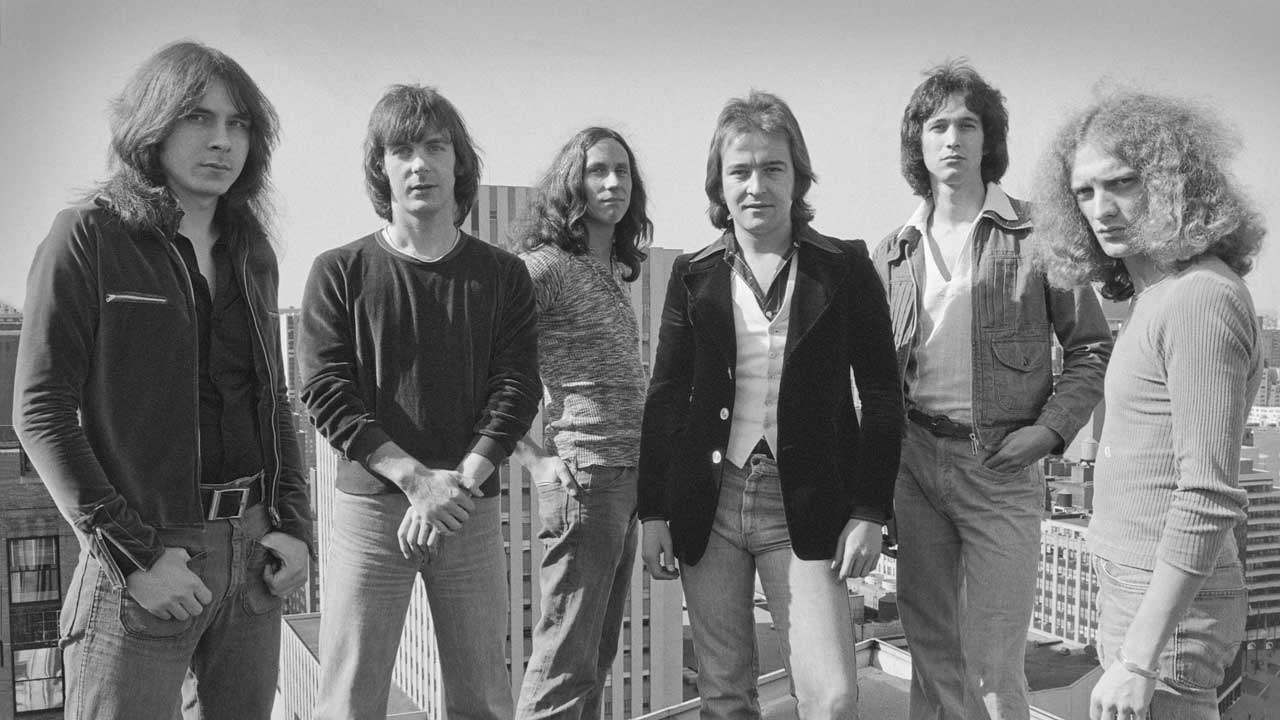
Select the newsletters you’d like to receive. Then, add your email to sign up.
You are now subscribed
Your newsletter sign-up was successful
Want to add more newsletters?
In 2024 Foreigner were inducted into the Rock & Roll Hall Of Fame. Band founder and creative lynchpin Mick Jones was unable to attend the ceremony, but original frontman Lou Gramm did, thanking Jones onstage and remembering how the pair "hit it off" during their first songwriting session. In 2013, we asked Jones, Gramm and another founding member, the late Ian McDonald, to reflect on a debut album that "opened the floodgates for what followed".
Mick Jones recalls the music trends as being stacked against Foreigner, when they released their self-titled, debut album in 1977. “Disco was at height, and punk and new wave were just hitting. So things didn’t look at all good for what we were doing!”
You should also bear in mind that we are talking about a band who struggled to get any interest from record companies.
“We were turned down by at least three labels – and one of these was Atlantic!” Even producer Roy Thomas Baker rejected the chance of working on Foreigner’s debut album. All of which makes its subsequent, astonishing success more of a triumph against all the odds.
“I believe we set the bar for the multi-million selling albums that dominated the next decade,” says guitarist/vocalist Jones about the first Foreigner record. “Only Boston sold at a comparable level to us with their debut album, and this opened the floodgates for what followed.”

Born in Portsmouth, Mick Jones had been in bands since the early 60s, and had achieved a modicum of success when he lived in France and worked with Johnny Hallyday.
“He was – and still is – treated like the French Elvis,” says Jones. “And being in his band gave me the opportunity of meeting so many greats, like Jimmy Page [who played on the Hallyday single A Tout Casser] and Otis Redding, who came over to teach Johnny how to sing soul. It was an incredible grounding, which taught me a lot. I call it my ‘French Period’.”
Sign up below to get the latest from Classic Rock, plus exclusive special offers, direct to your inbox!
In 1973, Jones hooked up with Gary Wright to start Wonderwheel.
“Then Island Records asked us to get Spooky Tooth back together [Wright had been an original member of the band], and that lasted about three years. But when Spooky Tooth broke up I was left high and dry in New York. However, I got the chance of joining the Leslie West Band [who released one self-titled album in 1976]. Working with Leslie was such a privilege; he was a great guitarist and songwriter, even though there were harrowing experiences at times. But it prepared me to do my own thing.”
In 1976, Jones began to bring to fruition a vision he’d been harbouring secretly for a long time.
“What I wanted to do was a British take on American music. I had gotten into R&B and also loved soul music. I was very comfortable with the idea of doing rock with a soulful feel – and that was the foundation for the new band.”
One of the most crucial people involved in this project from the beginning was Bud Prager. The pair had met because Prager managed Leslie West, but now they began to realise there was a synergy between them, one that would later prove to be mutually beneficial.“We challenged one another,” laughs Jones. “I threw down the gauntlet to him to prove he could be an effective manager for me, and he dared me to prove that I could actually put together my own band and make my musical dream come true. It was a great partnership.”
“I understood from the start that Mick wasn’t just an artist, but one who had the discipline to make things happen,” Prager once said. “Our relationship was more than just a manager and his client. I knew that first album would sell at least a million copies even before it was recorded, because I had complete faith in Mick.”
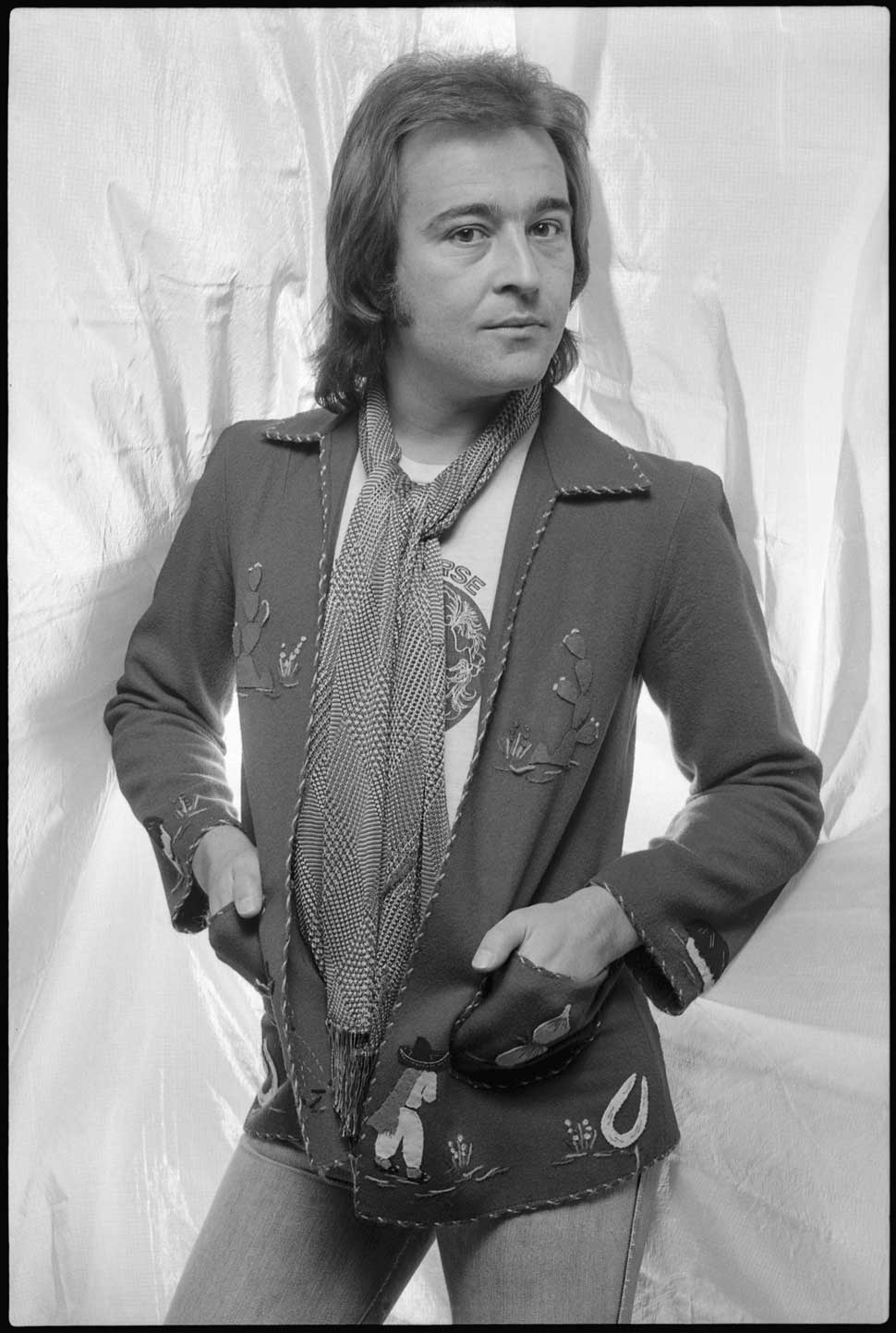
The quest for Jones was to put together a band who could bring his ideas to life, and he began with two Englishmen whom he already knew. “I had met Ian McDonald before the band idea ever came up,” Jones says, “and so it seemed logical to ask him to be part of this from the start.”
Multi-instrumentalist McDonald (who had been part of the early King Crimson) has a slightly different recollection on the timing of his recruitment.
“As far as I can recall, Mick already had a couple of musicians on board by the time he contacted me. I believe Al [Greenwood, keys] was already in the line-up, and there was one more as well, although I can’t now recall who this would have been. But Mick and I got on very well, so working with him was the sensible thing to do.”
The probability is that drummer Dennis Elliott was already involved when McDonald was brought in, because his arrival is seen as crucial by Jones.
“I had played with Dennis on Ian Hunter’s first solo album [1975’s Ian Hunter],” says Jones, “and he inspired me a lot in terms of the direction the band should take. He had a really special feel in the way that he played, and I loved that. Dennis acted as a sounding board for my ideas, and I’d say he was a major part of Foreigner. In fact, he was the spirit of the band as far as I was concerned.”
But Jones was also determined to bring in young talents who elicited a freshness and vitality. Musicians who weren’t tainted by years of failure or bitterness.
“Al Greenwood and [bassist] Ed Gagliardi both came from the New York area, and while they’d been in local bands for a few years, they’d not had any significant success. But both fitted in with what I was after.”
The American duo were both found through a series of extensive auditions held at a rehearsal studio in the building where Prager’s office was located.
“The studio had been built by Felix Pappalardi of Mountain, when he worked with Bud [the two effectively co-managed Mountain], so we just based ourselves there for nine months while the line-up came together.”
The biggest problem they faced was finding the right vocalist. In the end, around 50 hopefuls were auditioned.
“We tried out so many. And all of them were young guys who were unknowns at the time; I don’t think any of them went on to have success, though. There were a few who were good – but not good enough. You see, I had an idea in my head of how the singer should come across. I’d hear a Robert Plant or Paul Rodgers doing the songs, and I kept on singing to myself to get an idea of what worked. So I wasn’t prepared to settle for less than someone who really knocked me out.”
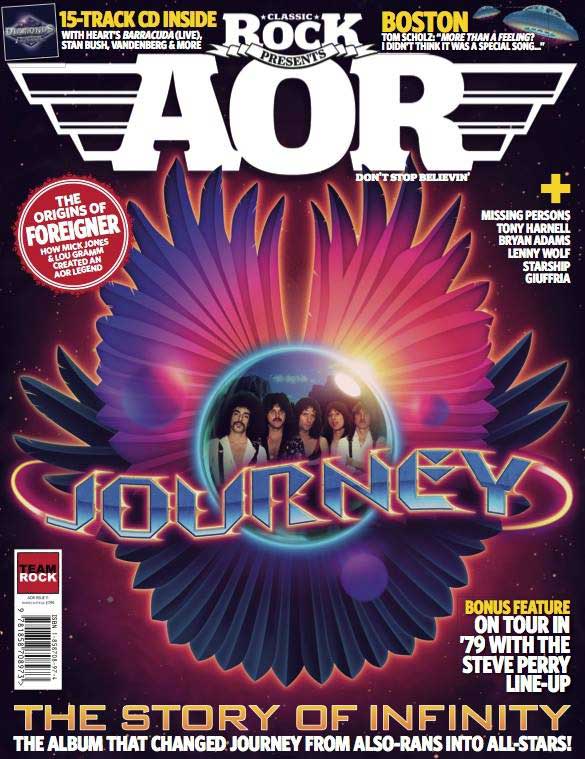
Two high profile vocalists were almost offered the chance to front the band. One was American Ian Lloyd, who had topped the US singles chart in 1973 with Brother Louie, while he was a member of Stories.
“Ian was a friend of mine, and he helped us out during the auditions. And I came very close to asking him if he wanted to be the vocalist in the band. He was really good, and it felt right when he did the songs.”
Lloyd would end up doing backing vocals not only on this album, but also subsequent Foreigner recordings. The second possibility, meanwhile, was a little more far-fetched.
“I had gotten to know Steve Winwood when Spooky Tooth toured with Traffic,” says Jones. “And while we were still struggling to find a suitable vocalist, I went on holiday to Wales with a friend. Steve was staying very close by, and we hung out for a few days. I was always a fan of his voice, and was very tempted to ask him if he’d consider joining the band. But I could never quite bring myself to ask him. I just thought he would inevitably turn down the whole idea, so it remained one of those thoughts you never put into action. Still, I do sometimes wonder if he might have agreed to give it a go!”
However, all such thoughts were dispelled when Lou Gramm entered the story. Formerly with Rochester, New York band Black Sheep (who had released two albums), Gramm was asked to audition by Jones.
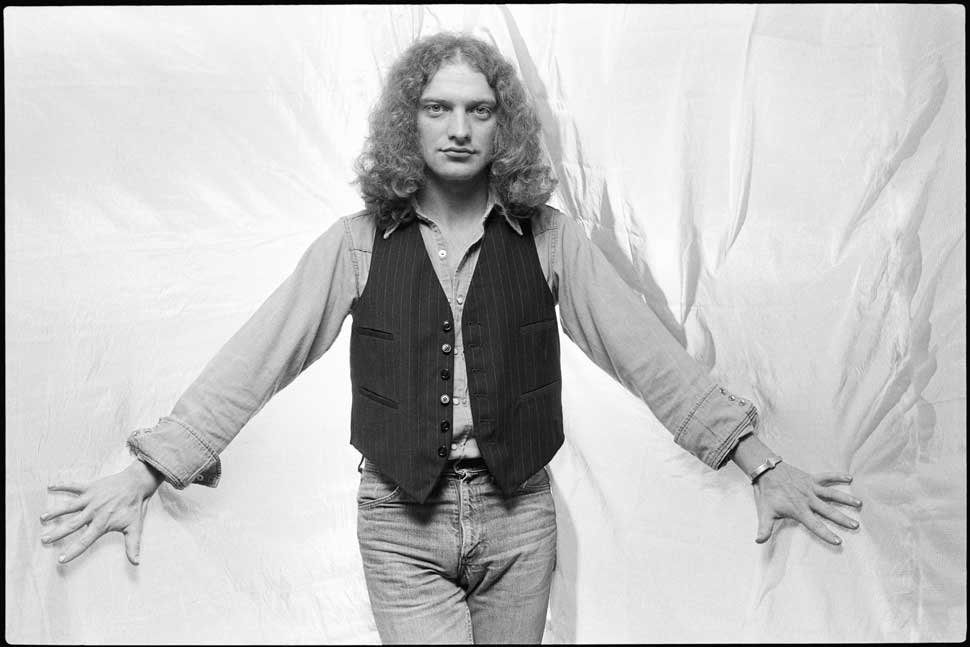
“What happened was that when Mick was still in Spooky Tooth, they played in Rochester, New York, where Black Sheep were based,” says Gramm. “So we went along to the show, and because our manager worked for A&M Records [to whom Spooky Tooth were signed in America], we got to meet the band afterwards, and gave them copies of our two albums [1974’s self-titled debut and the following year’s Encouraging Words].
“Then we had a major piece of bad luck. We’d been chosen to open for Kiss, but after the first gig in Boston our van hit a patch of ice, which not only destroyed the van but most of our equipment as well. That meant we had to pull out of the Kiss tour, and come off the road for ages.
“In April 1976, Mick tracked me down and asked if I’d like to audition for his new band. But I turned the offer down, because I was committed to Black Sheep. Anyway, Mick said he’d call again in two weeks to see if I’d changed my mind. Now, when I mentioned the offer to the rest of the guys, they told me to go ahead and audition, because Black Sheep would be out of action for a long time. So when Mick did call back, I accepted his offer.”
McDonald says that Jones took a lot of convincing before he finally plumped for Gramm as singer.
“Mick put on the first Black Sheep album, and as soon as I heard the vocals I just knew Lou was the man for us. I said so at the time to Mick, but he insisted that we had to go through the whole process of auditioning him. I kept on at Mick, telling him we had to grab this guy before someone else did, and finally he agreed with me. He was very cautious about it, though.”
Jones, though, suggests he was won over by Gramm almost immediately.
“As soon as he came in to the audition, I realised we’d found our guy. He sounded exactly the way I wanted the band’s singer to come across. Lou was just so much better than anyone else we had tried out. He brought everything to a new level.”
Gramm sang four songs in his audition: Feels Like The First Time, At War With The World, Woman, Oh Woman and Take Me To Your Leader. And these were the same songs the newly cemented sextet elected to record for the demo that they hoped would get them the all-important record deal. This was cut in the same rehearsal room where the auditions were held, and in the case of Feels Like The First Time it featured Gramm’s very first try at doing the song.
“The audition really put me on the spot,” smiles Gramm. “I walked in, they played me an instrumental version of Feels…, Mick sung over it straight to me, then gave me a lyric sheet, and I had only a few minutes to learn it, before singing it! My vocals were recorded and added to what the band had already done, and that was the version used on the demo.”
But getting label interest was to prove a torturous process for them – as Jones remembers with a slight hint of resignation.
“Between us, Bud and I knew Jerry Moss, who was president of A&M Records at the time; Clive Davis, the boss at Arista; and Ahmet Ertegun, who ran Atlantic Records. But we decided not to use these contacts, but just to send the tape in to the labels’ A&R departments, because we had so much faith in what we were doing. But all of them turned us down!”
However, there was to be a swift volte face by Atlantic, thanks to an aspiring A&R executive named John Kalodner. Kalodner would go on to become one of the most high-profile music business personalities of the 80s, working with bands like Aerosmith and Whitesnake, but in 1976 he was in the press department at the Atlantic New York office, and just getting started at the A&R department, when he came across the demo.
“It was the song Feels Like The First Time that grabbed me,” Kalodner remembers. “I told Jerry Greenberg [president of the company] that the label had to reconsider their decision and sign this band. Jerry told me that he thought it was Bud Prager’s time to have a hit band, so he went with me to see them in rehearsals, along with Bud, even though John Delahant [the director of A&R] was against signing them.
“We just felt the power of the band, heard how Mick could play and what a voice Lou had… And that was the clincher. We offered them a deal.”
“We owe so much to John Kalodner,” says Jones. “He was such a champion on our behalf at the label. He turned everything around for us and got the entire company on our side. But we could have ended up at A&M, actually. Jerry Moss had been away when our tape was rejected by them. On his return, Jerry heard it and loved what we were doing. He got in touch to offer us a deal, but by then we were committed to Atlantic. And, to be honest, I had always dreamed of being on Atlantic, because of their great history, so that’s where I wanted the band to go anyway.”
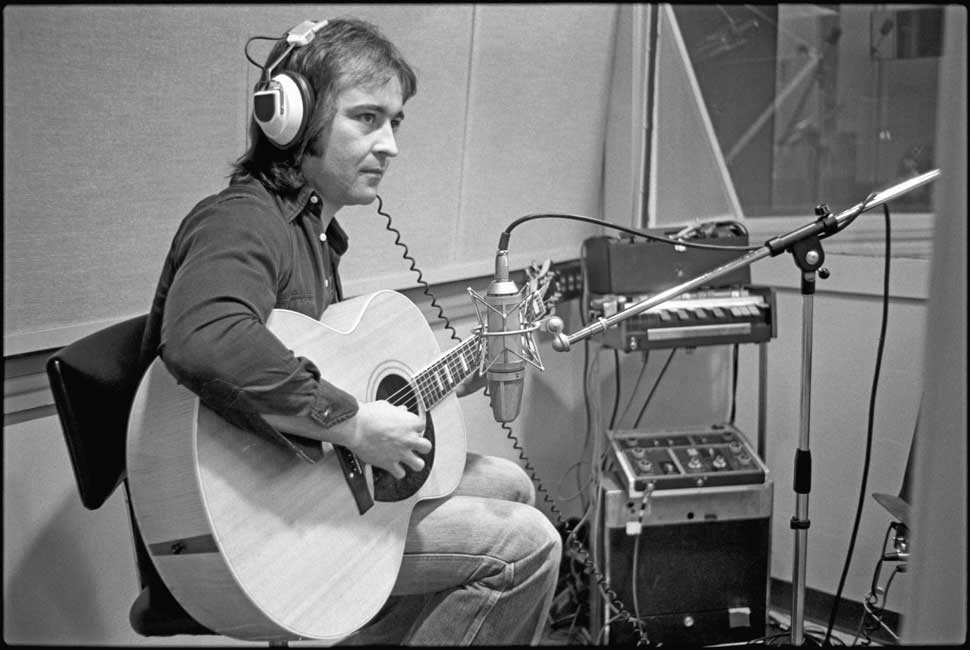
Now, when the band recorded their demo they weren’t called Foreigner. They were using the name Trigger, which almost persuaded Kalodner not to even bother listening to them! “I’d only recently seen a band called Trigger from New York,” remembers Kalodner, “and they stunk [this was the band who released a self-titled album through Casablanca in 1978, which has since become a cult classic]. So when I saw a tape from Trigger I thought it was the same one, and nearly ignored it!”
“I never liked the name Trigger anyway,” admits Jones, “and we all agreed that it should be changed. We had pages and pages of ideas, and a lot of them were embarrassing. Eventually, I suggested Foreigner, because we had three Englishmen and three Americans, so wherever we went there would always be a foreign element in the band. We did briefly toy with the idea of calling ourselves Alien, which is another way of saying we were foreigners, but it never sounded right.”
“As far as I can recall, we were never really known as Trigger,” insists McDonald. “It was just one of several names we were thinking about when doing the demo. And I have to admit I never liked the idea of being called Foreigner. However, there were no better names on our list.”
By the time Foreigner had their deal signed with Atlantic, Jones says he had every song prepared.
“I had them all written from a very early stage. And I was certainly getting better as a songwriter all the time. My confidence was definitely increasing. I had a lot experience by then of working with all-time great artists like George Harrison and Peter Frampton, as well as Leslie West, Jimmy Page and John Paul Jones, and their influence certainly rubbed off on me. I was also listening a lot at the time to Paul McCartney, and I was a big Beatles fan, so the importance they gave to a song’s chorus had an impact on what I was doing.
“But I also wanted to make sure that Lou was included in the writing process. After all, he was the guy who had to sing these songs. I worked closely with him to ensure he was comfortable with everything. When he did these tracks they had to sound genuine, which is something he could only deliver if the lyrics and melodies made sense to him.”
Jones is credited on the album as the sole writer on five tracks, and as co-writer on the rest, with Gramm getting a writing acknowledgement on four of these. But McDonald only gets a credit for Long, Long Way From Home, and this still rankles.
“I had a lot to do with the development of the songs,” he says. “And I’m still bitter about the way I was treated by some people connected to the band. I should have had co-writing credits on a lot more than just one song. And even with Long, Long Way From Home I remember telling Mick that I wanted to have a share of the writing, because of all I’d put in to making it happen, especially on the vocal arrangements. He gave me a look that said he wasn’t happy with the idea, and he reluctantly agreed. But I deserved a lot more of the credit than I was given. That’s the music business, though.”
Gramm has fond memories of working on the songs with Jones.
“We hit it off immediately, and found it easy to write together. The first two songs we worked on were Long, Long Way From Home and I Need You.”
Jones wanted Roy Thomas Baker to produce the Foreigner album, mainly due to his work with Queen.
“I was a big Queen fan,” admits Jones, “and loved the way their vocal harmonies worked, and also the overall sound Roy had gotten for them. I wasn’t looking to do exactly the same thing with Foreigner, but I believed he could make my vision for the band come to life. However, he wasn’t available.”
Instead, Gary Lyons and John Sinclair were brought in, two Englishmen who owned Sarm Studios in London.
“We co-owned it at the time with [producer/engineer] Barry Ainsworth and my uncle,” recalls Lyons. “Roy had done a lot of work at the studio with Queen, and I’d been involved with a number of the sessions. So, when Roy turned down Foreigner because of other commitments, he recommended me to the band.
“Bud Prager called and asked me to come out to New York to do the album. Now this was a big step for me, because I had very little experience as a producer and had never been to New York before. To be honest, I was scared of the whole deal, so I asked if John Sinclair, also my cousin, could come out with me to do the album.”
The production credits on the album cite not just Lyons and Sinclair, but also Jones and McDonald. So, how did this quartet work together?
“Actually, Mick and Ian did very little on the production side,” insists Lyons. “Typical of musicians, they wanted their names included, but they had nothing to do with what happened on the production side, although later on they remixed the album without John and me [we shall come to this shortly]. I can show you my contract for the album. John and I are down as the sole producers.”
“I had already gotten a lot of experience of working in studios, through collaborating with some top producers like Glyn Johns,” says Jones, who disagrees with Lyons’ version of events. “Both Ian and I worked closely on the way the album sounded. But it was a joint effort. I always like to involved people and get a team spirit going, which is what we did here.”
Gramm feels the presence of Lyons and Sinclair was crucial for the band.
“They were excellent to work with. The two were a bit like Yin and Yang. John came up with the ideas, while Gary made them work.”
The band spent four months in two New York Studios – Record Plant and Atlantic – recording the album.
“It was a time of excess,” laughs Jones.”And we were part of that. So, there was no real time pressure on us. But what we did have was a lack of budget. Fortunately, we had a good friend in Eddie Germano at the Record Plant, and he gave us a good deal to work in there.”
“As far as Atlantic Studios was concerned, we went in during their down time,” adds Lyons. “So, when there was no paying client working we’d be in there, which usually meant starting at something like 10pm and going through to 7am.”
While most of the process was smooth enough, Lyons recalls being unhappy with one song scheduled for inclusion.
“I can’t remember the title of the track [McDonald believes it was Take Me To Your Leader], but this didn’t fit in with the rest of the album. I had to come back to London to do something with Elton John and Kiki Dee, so I suggested to the band that they should try to write another song to replace it.”
“I went home after Gary said this, sat down at my piano and out came the riff for Cold As Ice,” says Jones. “And the rest of the song flowed from there.”
“When I got back, they played me Cold As Ice and it worked for me ,” says Lyons. “So we went into Atlantic Studios one night to cut it.”
And in one of those odd twists of coincidence, it turned out to be a very intriguing session.“Gary and I were in there all night working on the vocals,” reveals McDonald. “And when we got out of the studio we discovered that a blizzard had been raging. Everywhere was covered in snow, and we heard on the radio that it had been coldest night in New York on record! Somehow that seemed to be a good omen for the song.”
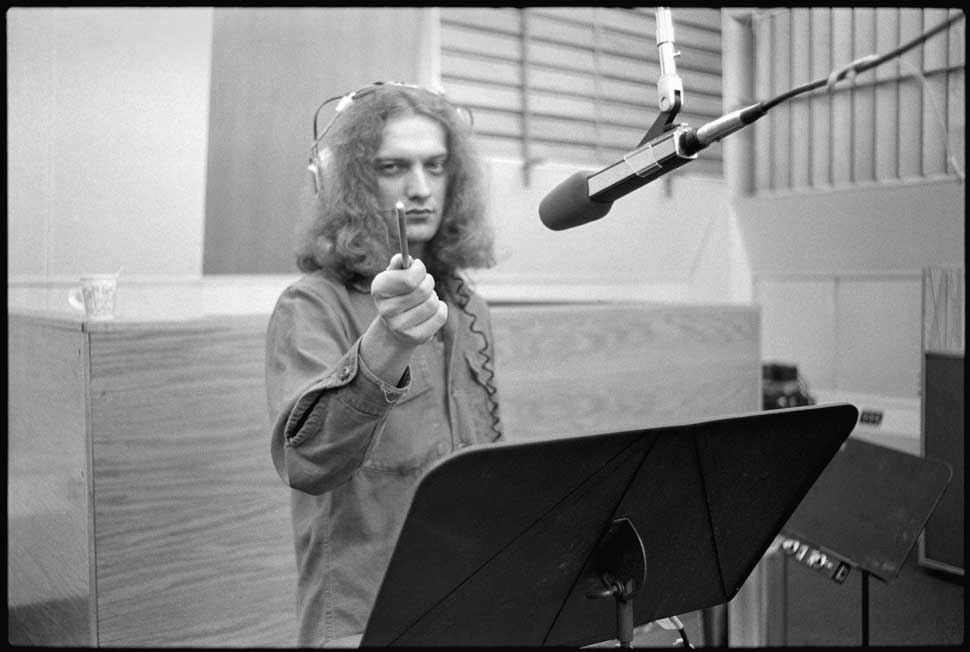
One interesting aspect of the album is that Jones actually does lead vocals on two tracks, these being Starrider and Woman Oh Woman. But as it turns out, for Gramm this was no problem.
“On both of these Mick did the lead vocals for the verses and I sang the choruses. But they were effective, because both tunes fitted in with Mick’s vocal style. The reason he wanted to do Starrider was because it was a song that was special to him, and he did a great job.”
However, when they heard the mix that Lyons and Sinclair sent them of the album, their positive vibes ebbed away.
“What happened was that Gary and John went back to London to do the mix at Sarm Studios,” explains Jones. “Now at the time I couldn’t leave America, because I was waiting for my green card to come through. I was effectively an illegal alien, and was expecting to be arrested and deported at any time. Therefore, I had to stay in New York. But Ian did make the trip over to London to listen to what they were doing.”
“I heard the mix and it was horrible,” sighs McDonald. “And I phoned Mick from the control room to tell him how bad it was. But Gary and John were standing there, in the room, when I called Mick. I had to somehow tell him what I thought of the mix without hurting their feelings. So, there was a lot of ‘Yeah’ and ‘No’ comments from me, as I got Mick to understand it just wasn’t acceptable.”
Jones and McDonald took the tapes into Atlantic Studios and worked with engineer Jimmy Douglas on getting a remix done, one that captured the magic of the recordings. These days Lyons is rather sanguine about it all.
“They didn’t like the original mix. No problem, because at the end of the day, Mick and Ian were the musicians, and if they were unhappy with what John and I had done, then that was their choice. And I guess that because they remixed the tapes, the pair of them felt they had the right to have a production credit.”
Jones recollects being delighted with the final album, but not exactly expecting the stratospheric sales that were to follow.
“Everything on the album went beyond my vision. I really thought we’d done something special, but at best I was hoping we’d sell a small number of records and start to get a following. So, when Feels Like The First Time began to get serious radio airplay, and the album [released in March 1977] sold huge amounts, it took us all by surprise. We were just not ready for that kind of exposure.”
McDonald, though, disagrees with Jones’ perceived humility over the album’s commercial expectations.
“I was convinced it would be a big seller, so when that started to happen I wasn’t at all shocked,” he says. “Maybe I had more confidence than Mick at the time. But then, I never had any doubts about what we were doing. Even when we got rejected by labels, I knew it would all come together.”
There was also one significant Atlantic executive in the UK who was totally won over by what Foreigner had achieved on their self-titled album.
“Dave Dee, who was the head of A&R at the label, was so excited by the album,” says Lyons. “He told me it would definitely sell more than a million copies – and he was right.”
But Lyons’ faith was tested by Bud Prager, and was found somewhat lacking, as the co-producer ruefully remembers.
“At the time, I had fallen out with John Sinclair,” Lyons says, “and was in the process of negotiating the sale of my share of Sarm Studios. Now, Bud strongly urged me to give John my share of the studio for nothing, in exchange for him signing over to me all the production rights on the Foreigner album. He told me this would make a fortune. But the conversation was before the record came out, and I sold my percentage of Sarm, and let John hold on to his production royalties. I regret that now!”
The statistics on the album are remarkable, given the era in which it was released. It got to No.4 in the US charts, selling over five million copies. And three singles – Feels Like The First Time, Cold As Ice and Long, Long Way From Home – were all Top 20 hits in the US, the first two making the Top 10. Both Feels… and Cold… were also Top 40 in the UK, the latter being their biggest success here until 1981’s Waiting For A Girl Like You hit No.8.
“It was the fastest-selling album in the Atlantic label’s history,” says a proud Jones. “Not even Zeppelin or the Stones had ever done what we did. I love that! And I am still so proud of the album, what it did for the band and also for melodic rock.”
“You have to remember the times we were in back then,” concludes Gramm .“It was 1977, when rock bands just weren’t supposed to sell at all. What we were doing wasn’t fashionable, and critics slammed us because we had no ‘image’ and were seen as just a faceless bunch. So when the album sold in its millions, it opened up the way for the rock brigade. I’d like to feel we changed the whole perception for rock not just in America but across the world.”
This was originally published in Classic Rock Presents AOR issue 11, published in June 2013.
Malcolm Dome had an illustrious and celebrated career which stretched back to working for Record Mirror magazine in the late 70s and Metal Fury in the early 80s before joining Kerrang! at its launch in 1981. His first book, Encyclopedia Metallica, published in 1981, may have been the inspiration for the name of a certain band formed that same year. Dome is also credited with inventing the term "thrash metal" while writing about the Anthrax song Metal Thrashing Mad in 1984. With the launch of Classic Rock magazine in 1998 he became involved with that title, sister magazine Metal Hammer, and was a contributor to Prog magazine since its inception in 2009. He died in 2021.




